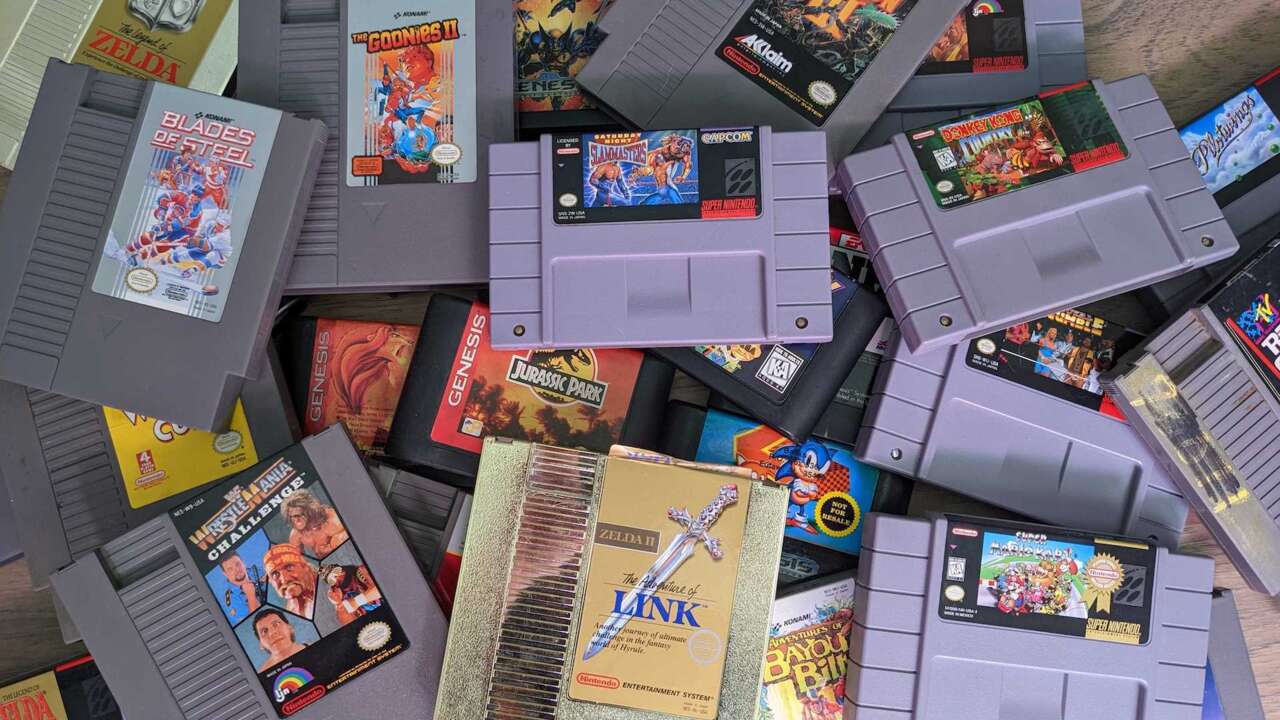RKGK Is an Anime-Inspired, Colorful Tribute to Mexican Graffiti Culture
During today’s Triple-i Initiative showcase, Gearbox Publishing unveiled a brand new game it’s supporting from indie studio Wabisabi. The game is called RKGK, and it’s a color-soaked love letter to 90s anime, 3D platforming, and Mexican graffiti culture.
RKGK is a single-player 3D action platformer, taking place in the futuristic dystopia of Cap City where the evil CEO of B Corp is trying to drain the metropolis of color and life. The main character, Valah, is on a mission to stop them by fighting B Corp minions, and coating the city in graffiti using a slick-looking parkour system.
Valah leaps, hovers, dashes, and glides around the city, spraying paint as she goes both as an offensive tactic, an anti-establishment statement, and at times simply as a marker to indicate she was there. The snippets of gameplay I saw gave off deliciously chaotic vibes: there’s some of the platforming sensibilities of 3D retro collect-a-thons, but the movement and vibes are a bit more like Jet Set Radio, and then the bullet hell boss battles look like something out of Nier: Automata.
Speaking with IGN ahead of the reveal, Wabisabi shared a bit more about the graffiti and culture at the heart of RKGK. From the start, the studio wanted to make a game around graffiti culture, especially its expression in Latin America and Mexico City, where the studio is based. “We strongly believe in the medium of graffiti as one of the most honest, purest ways for people to express their minds, especially when the message is not easy to digest,” says Wabisabi CEO and co-founder Anwar Noriega.
RKGK’s style does seem to be bursting with different inspirations. For one, its designs are taking cues from AR and VR development. Though Wabisabi was founded in 2018 with the intention of making RKGK, it took on a number of VR and AR projects to keep the studio afloat. As a result, RKGK’s in-game graffiti has some noticeable AR vibes – I can see them even in trailer in the way some of the game’s biggest designs seem to pop off the screen.
But even more than AR, Wabisabi poured love for the 90s culture its founders grew up with into RKGK. They tell me its heavily influenced by Japanese pop culture, the “golden era of 3D platformers,” the 90s and 00s electronic and rave music scene, and early 90s anime that aired on national television in Mexico: Dragon Ball, Sailor Moon, Captain Tsubasa, and more. Noriega tells me they especially wanted to mix the anti-establishment messages of both graffiti culture and cyberpunk anime such as Akira, Ghost in the Shell, and Ergo Proxy, and used these inspirations to shape RKGK’s visual language.
Wabisabi is a small, independent studio, but its got some hefty support. Riot Games provided initial funding for RKGK through its Underrepresented Founders Program, and then introduced RKGK to Gearbox to publish and support the rest of the way. Noriega says that Gearbox provided development resources, production advice, accessibility tools, marketing and PR efforts, and significant experience and insights to help the fledgling team “avoid making common mistakes with the development.”
“The fact that they trusted a newly created studio from a region where the games industry isn’t as well developed, speaks a lot about their commitment to bring more voices into the ecosystem,” says Noriega.
Gearbox Publishing offered the following comment: “It’s a privilege for our team to lend our expertise and skills to independent teams around the world and empower them to become leaders within their local game developer communities. From the first moment we met the Wabisabi Games team, we believed in their vision and pursuit to make the kind of game they always wanted to see in the world. RKGK wears its heart right on its sleeve, and we love celebrating that kind of earnest passion from developers. We admire how Wabisabi has thoughtfully crafted a love letter to their childhood joys and pay homage to what makes games so creatively inspiring. We can’t wait to help bring RKGK to players everywhere this summer.”
As Noriega pointed out earlier, Latin American developers and Mexican developers especially are underrepresented industry-wide. But with the support of Gearbox and Riot, Wabisabi hopes to introduce a global audience to a culture it may not have otherwise had the opportunity to connect with. And it’ll get that chance when RKGK launches on PC via Steam in 2024.
Rebekah Valentine is a senior reporter for IGN. Got a story tip? Send it to [email protected].
Check out our Latest News and Follow us at Facebook
Original Source







